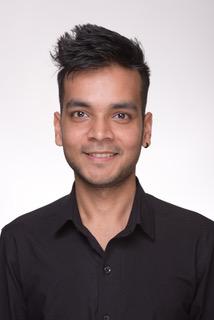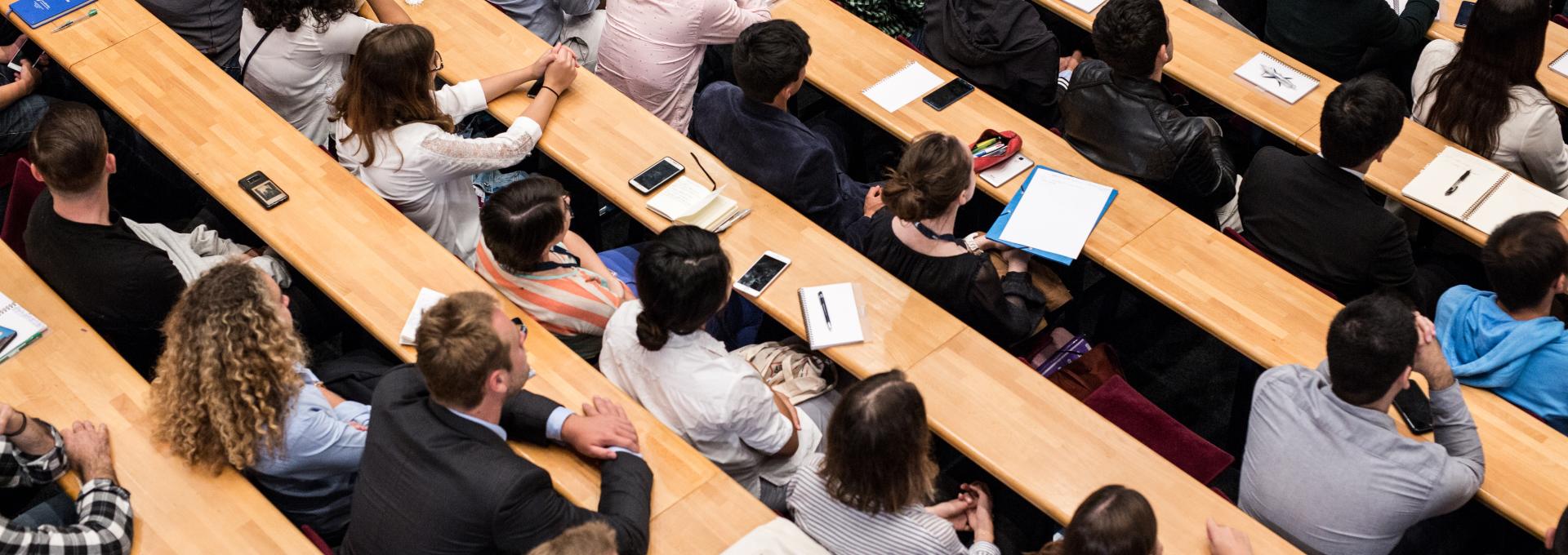Discover the daily life of MSc&T students at École Polytechnique.

Harsh was born and raised in Darjeeling, India. He is a civil engineer and soon to be environmental engineer. He is a student in the second year of Ecotechnologies for Sustainability and Environment Management Master. Let’s discover this Master’s program more in details with him!
Why did you choose to study at École Polytechnique?
In India, I had many French friends. I actually had more French friends than Indian ones! One day I was talking with one of them about our secondary studies and he told me that Ecole Polytechnique was the best school in France. I was actually looking for a school at that time and he challenged me to apply at l’X! I really wanted to come to École Polytechnique - I actually only applied for this university! –. I checked out all the courses online and I was interested in two of the Masters: Energy Environment: Science Technology and Management Master and Ecotechnologies for Sustainability and Environment Management Master. I happen to choose the latter because of my background in civil engineering but renewable energy still interests me. So, I put all of my efforts in my application and especially in the motivation letter and the letters of recommendation. And it worked pretty well for me as I got in!
Could you please tell us more about the Master’s program structure (courses, personal scientific project, Coriolis conferences, etc)?
I think the best part about the program is its structure. We take a lot of courses: the most important are the scientific ones (3 scientific courses), we have also one in management, one in humanities and French culture, a mandatory French course and a personal scientific project. Each of these courses are mandatory but we can choose among these various subjects. For example, for the management course, I chose entrepreneurship this year. But I could have taken energy market or cyber security if I wanted to.
With regards to the scientific project, the professor recommends us to do it as a group as it is easier for the bibliography and experiments. But it is also possible to do it on your own. Last year, our scientific project was to find an alternate degreaser that can replace the conventional halogenated degreasers. The project lasted for 7 months and you had to present it to a jury. For mine, the director of the program, Stéphane Bouchonnet, invited someone from the industry.
We also have the opportunity to go to Coriolis conferences. They are a kind of executive meetings with top players from industries in France or abroad. They come to l’X and present their companies, what they did after their graduation, their experiences and also their internship offers. We have Coriolis conferences every month and they are opened for all Masters’ students. It is not mandatory because some of the conferences are focused on a specific sector. Luckily, last year I attended a conference with an executive from SUEZ. I talked to him afterwards and he encouraged me to apply for an internship!
Moreover, we have various field trips and company visits during the Master’s program. We went to VEOLIA (Maisons Laffitte), SEMARDEL, PAPREC, SIAAP, INRAe, INERIS. These trips give you a hands-on experience, allow students to understand how the companies work and what they could expect from you if you join this field. Last year, we went to visit a water treatment company, VEOLIA, for example. After the visit, I really wanted to join a water treatment company for my internship.
Did you have any favourite subject(s)?
My favourite courses were related to water treatment. Last year, we had a course on waste water treatment and this year we had one about drinking water treatment. I loved these subjects because I have a background in water treatment as a civil engineer. Furthermore, one of my aims in life is to go back to India and create a start-up or a company related to water treatment.
How does the rating system work in the Master?
In my program, the teachers ask for our opinion on how we would like to be evaluated, which I find great. We have options between written tests, presentations, reports, review of academic papers, etc. They want us to understand the subject and then we can choose how to be evaluated in most of the courses.
Could you please tell us more about the internship you did last year? And what about the next one?
Last year, I did my internship at Suez which is the world’s second largest water treatment company. My internship was quite peculiar in the sense that I worked in the drinking water cluster but my tasks were related to coding, which was not a big part of my Master’s program. During my internship, I did a software development course. My chief had no idea about software development either, so both of us were in the same boat, trying to learn how to code! And it went well as I’m going to Suez again for my Master’s second year internship! This time I will do performance analysis which is very different from what I did during my previous internship, that was more research oriented.
Personally, I feel online recruitment does not work somehow, we really need to attend meetings and conferences to broaden our network to land a good internship.
What would you like to do after your Master degree?
That’s a tricky one! I am confused between working in the water treatment industry or doing a PhD in this field. But the silver lining is that I have both the options open after my master. What is sure is that I want to gain more expertise in water treatment before working in the industry. I would like to be in France to gain this experience and maybe I will go back to India after 10-20 years so that I have enough expertise and finances. Maybe I will open a start-up in France that would allow me to create a connection between France and India. Let’s see what happens!
